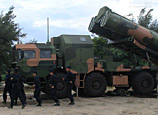
Career in Swire
Bradley has been working in the Swire group for more than 24 years at management positions in various divisions in different nations and regions, including Papua New Guinea, Japan, Hong Kong, the United States, Taiwan, Vietnam and the Middle East.
After moving across to Swire Properties in 2006, he assumed his current role in 2011.
Recalling his first 10 years in the conglomerate - working for Swire Coca-Cola Beverage, Bradley said: "That's the footprint for Swire Coca-Cola. I ran the franchise in Fujian province. The beverage business gave me a very good experience in how to live and work in China."
The beverage business also gave Bradley an impression of what he called "the real China".
"It is quite useful because we were on the streets dealing with small shops and checking transportation work and warehouse operations. It's the real China. I also went to Jiangsu for three months during that period, visiting every corner of the province," he said.
Bradley said he is now in the most exciting business of his career because China offers huge business opportunities for Swire Properties. "There is no place I would rather be at this moment. This is where I want to be working. This is a story for business," he said.
Chinese commercial and mixed-use properties are lucrative to investors. In 2010, en bloc real estate investment reached a record $15.02 billion, up 34.6 percent compared with the year before, a Jones Lang LaSalle report said. This is in sharp contrast with the weakened property market in the United States and Europe, which are still suffering from the fallout of the global financial crisis.
"The interest in commercial properties was also triggered by the central government's tough restrictions on residential property trading, which diverted capital into the commercial sector, especially in first-tier cities," said Qin Hong, director of the policy research center affiliated with the Ministry of Housing and Urban-Rural Development.
New idea
"We will take a very long-term perspective on China. We have spent some 40 years successfully developing and managing large-scale mixed-use projects in Hong Kong and we have been keen to bring our expertise and experience to the mainland," Bradley said.
Concerning the current economic downturn, Bradley said it has had little impact on the group's business in China: TaiKoo Hui in Guangzhou and Indigo and Sanlitun Village in Beijing have been moving in the right direction.
On TaiKoo Hui, the retail occupancy rate is now almost 99 percent and that for its offices is close to 80 percent. "But this year the commercial area is slowing globally, even in China. All of us (developers) can see the slowing business through the sales figures," he said.
Most cities in China continued to exhibit positive rental growth in high-end commercial projects in the third quarter of 2012, according to Colliers International, a global real estate service. The average office rent in China registered an increase of 2.3 percent in the third quarter.
"Sales are down across the whole year but don't forget it is a slower rate of growth. That means the business is still growing. In Europe right now, they can't see such growth," said Bradley.


















 Public letter calls for gay marriage legislation
Public letter calls for gay marriage legislation


![]()
